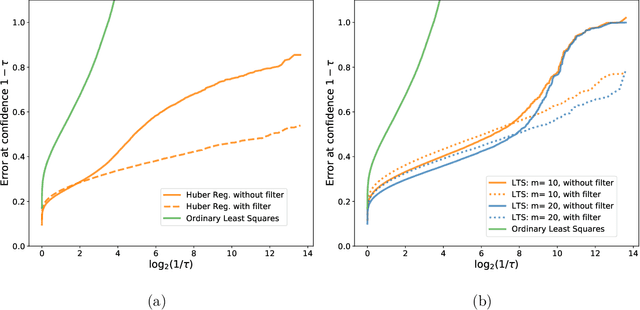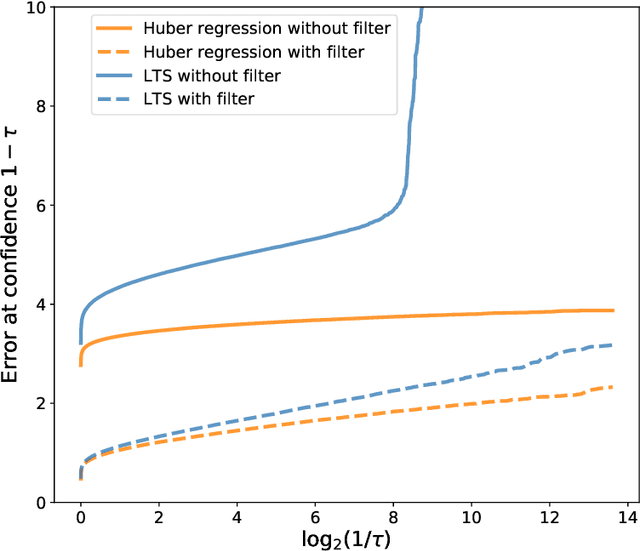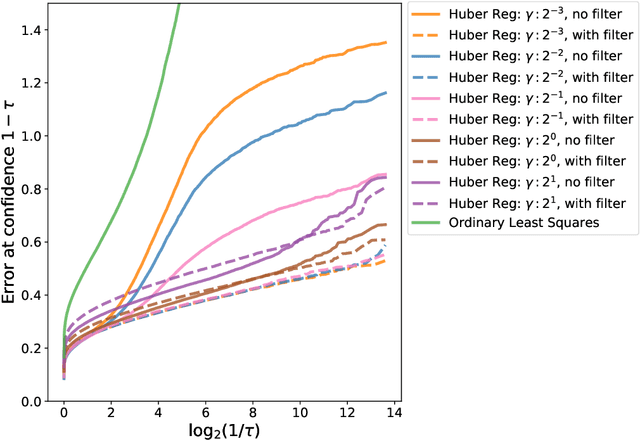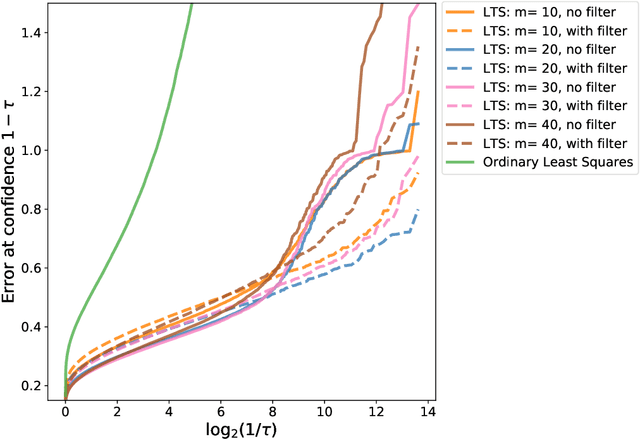Robust regression with covariate filtering: Heavy tails and adversarial contamination
Paper and Code
Sep 27, 2020



We study the problem of linear regression where both covariates and responses are potentially (i) heavy-tailed and (ii) adversarially contaminated. Several computationally efficient estimators have been proposed for the simpler setting where the covariates are sub-Gaussian and uncontaminated; however, these estimators may fail when the covariates are either heavy-tailed or contain outliers. In this work, we show how to modify the Huber regression, least trimmed squares, and least absolute deviation estimators to obtain estimators which are simultaneously computationally and statistically efficient in the stronger contamination model. Our approach is quite simple, and consists of applying a filtering algorithm to the covariates, and then applying the classical robust regression estimators to the remaining data. We show that the Huber regression estimator achieves near-optimal error rates in this setting, whereas the least trimmed squares and least absolute deviation estimators can be made to achieve near-optimal error after applying a postprocessing step.
 Add to Chrome
Add to Chrome Add to Firefox
Add to Firefox Add to Edge
Add to Edge